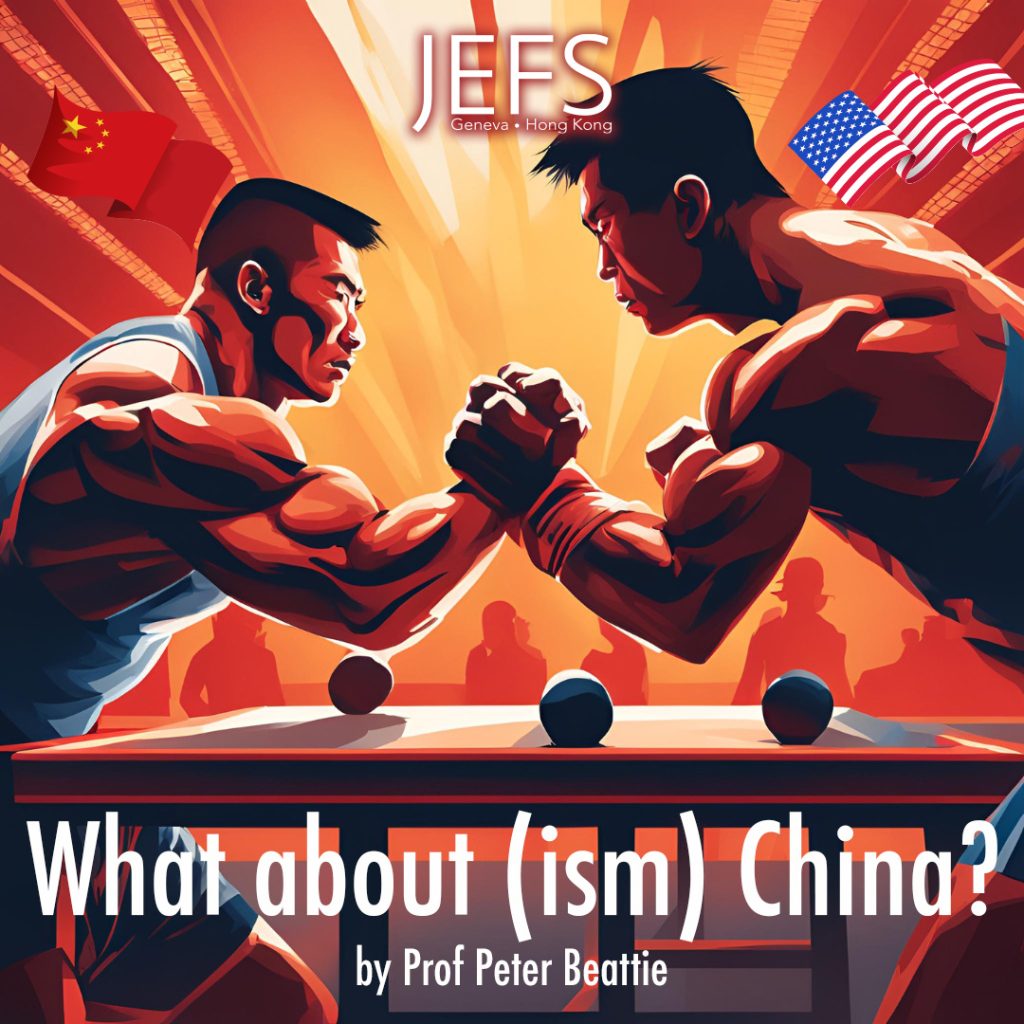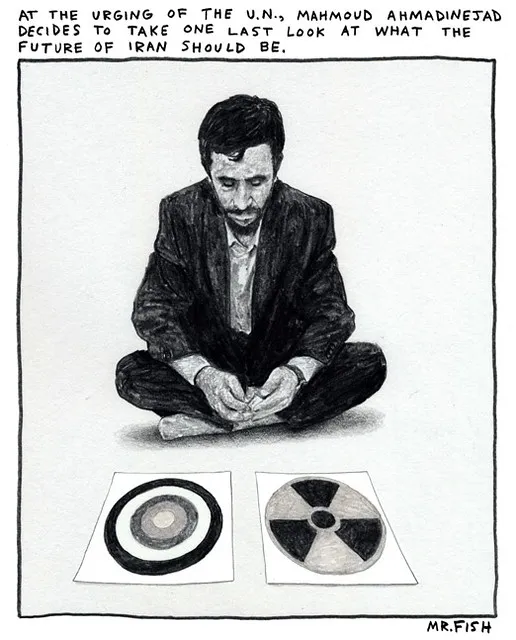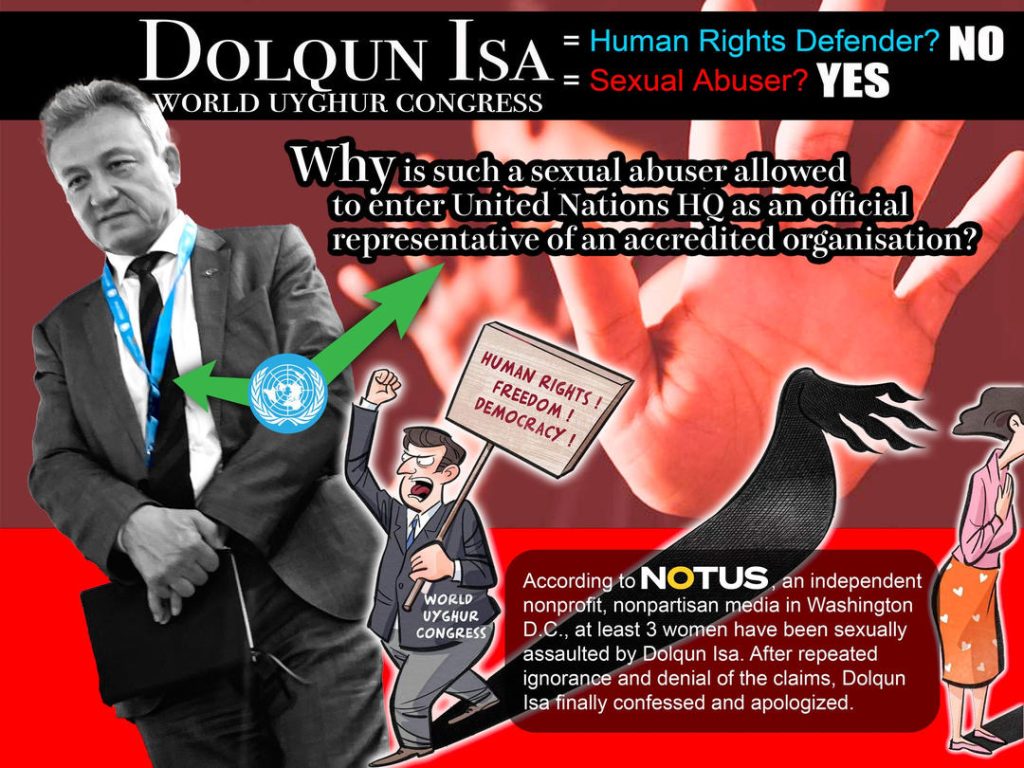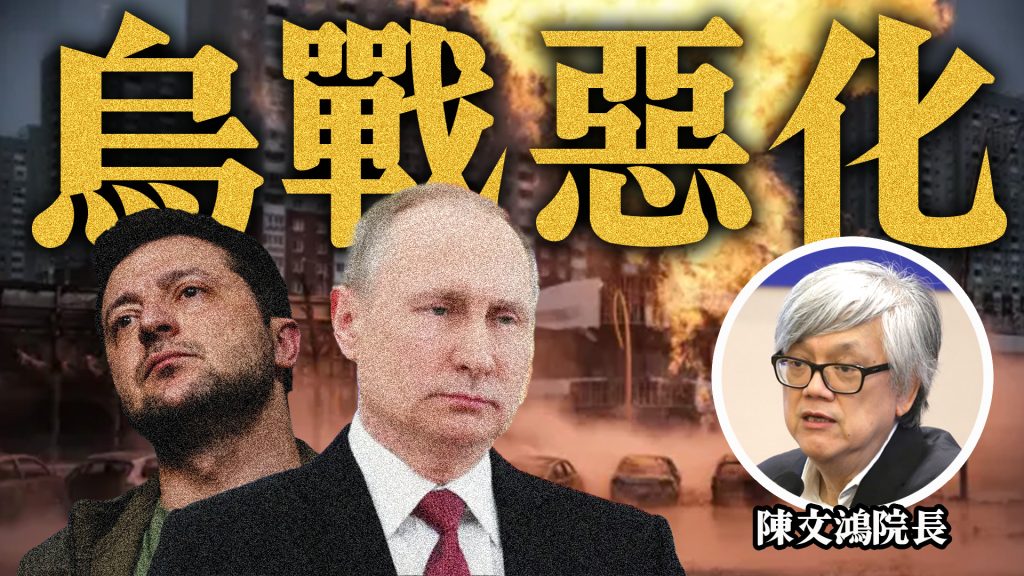
How can you say to your brother, ‘Brother, let me take the speck out of your eye,’ when you yourself fail to see the plank in your own eye? You hypocrite, first take the plank out of your eye, and then you will see clearly to remove the speck from your brother’s eye. (Luke 6:42)
And then a very smart observer called out, “Jesus, there you go with your whataboutery again! This man clearly has a speck in his eye. It is rank whataboutism to tell me not to take the speck out of his eye just because my eye may or may not have a little plank of wood in it!” (Idiot 1:1)
Earnest use of the term “whataboutism” is a dead giveaway of idiocy. It originates from the Irish national liberation struggle, when supporters of the British empire’s first foray into colonialism were made to feel bad, icky. Egads! How did this emotional horror occur? By being told that their in-group was guilty of atrocities in Ireland that justified violence in self-defense.
“Whataboutism” is close enough to an actual logical fallacy — tu quoque or the appeal to hypocrisy — for intellectual mediocrities to be fooled into thinking that by using the term, they have made a point. Let’s see how well it works in other contexts:
A: “Why, you American rebels are mass murderers, killing scores of young British men!”
B: “That’s because your king wants to keep us as his colonial possession, but we want independence, and so we are fighting a revolutionary war to be free of his despotism – and of course, soldiers kill and die in war!”
A: “Oh here we go with the whataboutery again! Just because King George has a policy you disagree with doesn’t justify your murders!”
Or, taking out the overt racism that would make this example more historically accurate:
A: “You Haitian revolutionaries are murderous beasts, executing thousands of innocent human-capital investors, plantation managers, and French peacekeepers!”
B: “You mean the people who violently kidnapped us from Africa, enslaved us, tore our families apart, raped us, tortured us, worked us to death, and killed us arbitrarily?”
A: “I see, so whataboutism is your only retort? Nice try.”
And so it goes today, with cries of “whataboutism” when anyone points out that over the past few decades, the combined crimes of the Chinese government pale in comparison to the combined crimes of the U.S. government.(1) (What analogy could I use? Ah! Like a speck versus a plank.) True, it would be a logical fallacy (tu quoque) to argue that because the U.S. government is guilty of greater crimes than the Chinese government, anything the Chinese government does is good. Find me someone making that argument, and I’ll join you in pointing out its flaw.
Jesus’ point wasn’t that it’s OK to keep a speck in your eye because other people have planks in theirs. (That’s tu quoque.) His point was that to have the acuity required to remove a speck from someone else’s eye, it’s pretty important to remove any planks in your own eye. It’s good advice, and works just as well in the context of international relations.
Imagine if the U.S. government really did have a come-to-Jesus moment during WWII, and President Henry Wallace reoriented U.S. foreign policy away from pure power-maximization, and toward supporting actual self-determination and development around the world. Imagine too that 9/11 still happened (because they hated us for our freedoms, not for the actual reasons bin Laden stated — since in this came-to-Jesus counterfactual those reasons would not have existed). But instead of invading two countries and bombing several more, leading to the deaths of certainly hundreds of thousands and very likely well over a million human beings, the U.S. government treated the 9/11 atrocity as a crime instead of a casus belli. Then, today, a U.S. diplomat could address his Chinese counterparts:
”We understand that you have also been the victim of terrorist attacks, and worry about the threat of future terrorism. We lost nearly 3,000 people during the 9/11 attack. What was our counter-terrorism policy? We did not start illegal wars, we turned no country into a hell on earth, kill or torture countless people, or persecute Muslims in the U.S. Of course not! We treated Osama bin Laden and his co-conspirators as common criminals, arresting them and bringing them to trial. We care about our Muslim brothers and sisters. Which is why we are asking for cooperation on counter-terrorism policy. We are concerned that your policy of casting a broad net, imprisoning hundreds of thousands in reeducation camps to eradicate jihadist ideology, is hurting innocent people and may even be counterproductive. So we hereby invite your representatives to a summit to plan a joint de-radicalization strategy, along with representatives of dozens of other countries facing challenges with their own de-radicalization programs, kindly hosted by the Cuban government at their beach resort at Guantanamo Bay, which used to be a U.S. military base during our darker days.“
That’s the benefit of getting the plank out of one’s own eye before removing a speck from another’s: the job will be better done.
And since we’re imagining things here, imagine that China actually had “wolf warrior” diplomats (as opposed to sheep-in-wolf’s-clothing diplomats). Their response to Blinken or Biden blathering about their deep concern for Muslim human rights in Xinjiang would go something like this:
“Bitch, are you fucking kidding me!? Let’s compare counter-terrorism policies for a second here: ours includes arresting hundreds of thousands of people who may believe in jihadist or violent separatist ideologies, and attempting to change their minds in reeducation camps. Are lots of innocent people imprisoned in the process? Do prison guards often abuse prisoners? Is the pope Catholic? Of fucking course there are injustices, but what’s your better idea to stop terrorism? Your counter-terrorism policies include illegally invading two countries and drone-bombing several more, killing over a million human beings in the process, k-i-d-n-a-p-p-i-n-g. I mean “extraordinarily renditioning” people to torture chambers in your rules-based liberal international order™-loving allied countries, torturing people in your own military bases, and persecuting Muslims in your own country. Tell me, motherfucker – who has a deep concern for Muslim human rights again?”
So what is my point? Am I a “tankie” who believes that China’s government is perfect or nearly so, and that contemporary China is a worker’s paradise, a beacon for the world to follow on the glorious road to socialist utopia? No, I’m merely a realist.
Years ago, I agreed with Noam Chomsky that the dissolution of the USSR was “a small victory for socialism.” That is, from my perch as a young man living in the United States, I thought that the possibility of devolving power from owners and managers to workers themselves, and introducing democratic control over society’s economic surplus to provide a higher standard of living for all, was more likely now that the word “socialism” would be freed from its association with the government of the USSR.
But two things happened. Rather, one thing didn’t happen: we’re still no closer to a political-economic system in which workers have significant control over the enterprises they comprise, or in which citizens have any tangible influence over investment decisions. The “euthanasia of the rentier” is further away than even when Keynes coined the phrase (low interest rates notwithstanding). I guess that “small victory” was… just too small. In fact, it’s pretty hard to see any victory, over the 2-3 million corpses piled up as the woefully deficient “really existing” socialism of the USSR was replaced by capitalism.
Second, I studied international relations theory. I had already read Chomsky and others’ accounts of the brutalities the U.S. government inflicted around the world, in what can only be described as a Luciferian lust for more and more power. But in IR theory, instead of any sort of rebuttal, what I found was justification and rationalization for that very same lust for power. (After all, if a country doesn’t single-mindedly amass power, the IR scholar-courtier says, it flirts with extinction. It would be irresponsible, nay, immoral not to act like the meanest rat bastard on the world stage!)
IR theory, by the way, is what the U.S. foreign policy establishment studies and creates. What climate science is to U.S. environmental policy, IR theory is the opposite to U.S. foreign policy. That is, IR theory exerts actual influence.
When the U.S. became the global hegemon in the wake of WWII, it had what no other country had. It alone had the power to fundamentally change the rules of the game. The same game that humans have been playing since the dawn of sedentary civilizations: the strong do as they will, the weak suffer what they must. Better to focus exclusively on power-maximization, so you can be one of the strong. Or as Obama’s father put it:
“Men take advantage of weakness in other men. They’re just like countries in that way. The strong man takes the weak man’s land. He makes the weak man work in his fields. If the weak man’s woman is pretty, the strong man will take her.” He paused to take another sip of water, than asked, “Which would you rather be?”
Instead of using its power to fundamentally change the rules, the U.S. government made a few cosmetic changes. Now that the richest men in the U.S. were to be the world’s rulers, their government did nothing to make the game — the world system, the international order — any fairer for the weak man, or weak country.
The game isn’t pretty. Any country that isn’t the strongest in the global pecking order does not have full freedom to implement whatever policies it likes. The principle of self-determination has all the force of a letter to Santa Claus. Maximizing power is effectively an imperative for weaker countries; whereas for the hegemon, it is a choice.
I like Chomsky, and I am attracted to the morality that animates anarchists and the anarchist-adjacent. Their vision of freedom and non-domination is compelling. It even swims with the tide of human nature. But today, when I hear moral criticism of any government that is not the global hegemon, my ears perk up in expectation of a detailed explanation as to precisely what that government could and should have done, given its position in the global system. If I don’t hear any such explanation, I drift off. I can hear useless moral prattling at any number of churches, and at least there I could get a sip of wine.
When it comes to China, my position is this: criticize away, so long as you acknowledge that when it comes to making lives worse around the world, or ending them altogether, the Chinese government is a piker in comparison to the U.S. government. Better yet, make your criticism constructive: lay out alternative policies at every point, always keeping your analysis within the context of the global system and its constraints. And best of all, if you are a U.S. citizen, focus your energies instead on the government you have nominal control over, and at least try to use its position as hegemon to rewrite the rules of the game in a more humane and democratic direction. I’d love for my own government to be able to remove specks from other governments’ eyes. But first we need to remove the plank from its own.

From Vincent Bevins’ The Jakarta Method:
This was another very difficult question I had to ask my interview subjects, especially the leftists from Southeast Asia and Latin America. When we would get to discussing the old debates between peaceful and armed revolution; between hardline Marxism and democratic socialism, I would ask:
“Who was right?”
In Guatemala, was it Arbenz or Che who had the right approach? Or in Indonesia, when Mao warned Aidit that the PKI should arm themselves, and they did not? In Chile, was it the young revolutionaries in the MIR who were right in those college debates, or the more disciplined, moderate Chilean Communist Party?
Most of the people I spoke with who were politically involved back then believed fervently in a nonviolent approach, in gradual, peaceful, democratic change. They often had no love for the systems set up by people like Mao. But they knew that their side had lost the debate, because so many of their friends were dead. They often admitted, without hesitation or pleasure, that the hardliners had been right.
Author: Prof Peter Beattie, Chinese University of Hong Kong
(1)
This isn’t contestable. Of course it would be contested by the uninformed, because, as Orwell put it: “The nationalist not only does not disapprove of atrocities committed by his own side” — there are always justifications: our intentions were pure, it was for democracy/freedom, mistakes were made, a few bad apples, etc. – “but he has a remarkable capacity for not even hearing about them.”
「那邊(中國)又怎樣」主義
你怎麼能對你的兄弟說:“兄弟,讓我把你眼中的刺去掉,”卻自己看不見自己眼中的梁木呢?你這個偽君子,先把你眼中的梁木去掉,然後你才能清楚地去掉你兄弟眼中的刺。(路加福音 6:42)
然後,一位非常聰明的觀察者大聲說:“耶穌,你又開始你的‘那又怎樣’了!這個人明顯眼中有刺。告訴我,因為我眼中可能有一根小梁木,就告訴我不要去把他眼中的刺去掉,這完全是荒唐的‘那又怎樣’!”(愚人 1:1)
認真使用“那又怎樣”這個術語是愚蠢的明顯標誌。它源於愛爾蘭的民族解放鬥爭,當時支持英國帝國首度進行殖民主義的人感到內疚,感到不安。哎呀!這種情感上的恐怖是怎麼發生的?是因為被告知他們的團體在愛爾蘭犯下了罪行,這些罪行為暴力自衛提供了正當理由。
“那又怎樣”與一個實際的邏輯謬誤——同樣的錯誤或訴諸偽善——相似,讓那些智力普通的人誤以為使用這個術語就能提出一個論點。讓我們看看它在其他上下文中的效果:
A: “你們這些美國叛軍就是大屠殺者,殺死了許多年輕的英國人!”
B: “那是因為你們的國王想把我們當作他的殖民財產,而我們想要獨立,所以我們正在打革命戰爭以擺脫他的專制統治——當然,軍人在戰爭中會殺人和死去!”
A: “哦,又來了‘那又怎樣’!僅僅因為喬治國王有你不同意的政策,並不能合理化你們的謀殺!”
或者,去掉一些明顯的種族主義,使這個例子更具歷史準確性:
A: “你們海地革命者是殺人魔,處決了數千名無辜的投資者、種植園經理和法國維和部隊!”
B: “你是指那些從非洲暴力綁架我們、奴役我們、撕裂我們的家庭、強姦我們、折磨我們、讓我們死於過勞並任意殺死我們的人嗎?”
A: “我明白了,那麼‘那又怎樣’就是你唯一的反駁?不錯,試得不錯。”
如今也是如此,當任何人指出,過去幾十年來,中國政府的罪行與美國政府的罪行相比顯得微不足道時,便會有“那又怎樣”的叫嚷。(註1)(我可以用什麼類比?啊!就像刺與梁木的比較。)確實,主張因為美國政府的罪行比中國政府的罪行更大,中國政府所做的一切都是好的,這將是一種邏輯謬誤(同樣的錯誤)。找個人提出這種論點,我會和你一起指出它的缺陷。
耶穌的觀點並不是說,因為其他人眼中有梁木,所以你眼中有刺也無妨。(那是同樣的錯誤。)他的觀點是,要有能力去除別人眼中的刺,重要的是要先去掉自己眼中的梁木。這是個好建議,並且在國際關係的語境下同樣有效。
想像一下,如果美國政府在二戰期間真的有一個覺醒的時刻,總統亨利·華萊士重新調整美國的外交政策,從單純的權力最大化轉向支持全球的真正自決和發展。想像一下,911事件仍然發生(因為他們因我們的自由而恨我們,而不是本·拉登所說的實際原因——因為在這個假設的覺醒中,這些理由並不存在)。但美國政府並沒有入侵兩個國家和轟炸幾個國家,導致數十萬人甚至超過一百萬人喪生,而是將911事件視為一宗犯罪,而不是開戰的理由。那麼,今天,一位美國外交官可以對中國同僚說:
我們理解你們也曾是恐怖襲擊的受害者,並擔心未來恐怖主義的威脅。我們在911襲擊中失去了近3000人。我們的反恐政策是什麼?我們沒有發動非法戰爭,沒有把任何國家變成地獄,不殺或折磨無數人,也不在美國迫害穆斯林。當然不是!我們把本·拉登和他的共謀者視為普通罪犯,逮捕他們並將他們提起公訴。我們關心我們的穆斯林兄弟姐妹。因此,我們要求在反恐政策上合作。我們擔心你們廣泛拘留的政策,將數十萬人囚禁在再教育營以根除聖戰主義意識形態,正在傷害無辜的人,甚至可能適得其反。因此,我們在此邀請你們的代表參加一次峰會,計劃一個聯合去激進化的策略,與其他面臨自己的去激進化計劃挑戰的數十個國家的代表共同舉行,由古巴政府在他們的海灘度假村關塔那摩灣友善主辦,這曾是我們黑暗時代的美國軍事基地。
這就是在去除別人眼中的刺之前,先去掉自己眼中的梁木的好處:這項工作會做得更好。
既然我們在這裡幻想,想像一下中國實際上有“狼戰士”外交官(而不是披著羊皮的外交官)。他們對布林肯或拜登關於他們對新疆穆斯林人權的深切關注的廢話的反應會像這樣:
你在開玩笑嗎!?讓我們比較一下反恐政策:我們的政策包括逮捕數十萬可能相信聖戰或暴力分離主義意識形態的人,並試圖在再教育營改變他們的想法。在這個過程中,有很多無辜的人被囚禁嗎?監獄看守經常虐待囚犯嗎?教皇是天主教徒嗎?當然有不公正,但你們的更好主意是什麼來阻止恐怖主義?你們的反恐政策包括非法入侵兩個國家,並轟炸幾個國家,過程中殺死超過一百萬人,將人們“異常引渡”到你們的規則基礎的自由國際秩序™的盟國的酷刑室,在你們自己的軍事基地折磨人們,並在你們自己的國家迫害穆斯林。告訴我,媽的 – 誰對穆斯林人權深切關注?
那麼,我的觀點是什麼?我是一個“坦克派”,相信中國政府是完美的或幾乎完美的,當代中國是工人的天堂,是全世界追隨的燈塔,走向社會主義烏托邦的光輝道路?不,我只是個現實主義者。
幾年前,我同意諾姆·喬姆斯基的觀點,認為蘇聯的解體是“社會主義的小勝利”。也就是說,從我作為一個生活在美國的年輕人的角度來看,我認為從擁有者和管理者手中將權力下放給工人自己,並引入對社會經濟剩餘的民主控制,以提高所有人的生活標準的可能性,因為“社會主義”這個詞將擺脫與蘇聯政府的聯繫而變得更大。
但發生了兩件事。實際上,有一件事沒有發生:我們仍然沒有接近一個工人對自己所屬企業有重要控制,或公民對投資決策有任何切實影響的政治經濟體系。所謂的“租金者的安樂死”比凱恩斯創造這個詞的時候更遠。(儘管利率低。)我想這個“小勝利”……實在是太小了。事實上,很難看到任何勝利,在那2-3百萬的屍體堆積在蘇聯的“真正存在的”社會主義被資本主義取代的背景下。
其次,我學習了國際關係理論。我已經讀過喬姆斯基和其他人關於美國政府在世界各地施加的暴行的描述,這可以說是一種路西法式的對權力越來越渴望。但在國際關係理論中,我發現的不是任何形式的反駁,而是對那種對權力的渴望的辯護和合理化。(畢竟,如果一個國家不專心聚集權力,國際關係學者說,它會面臨滅絕的危險。這樣做是不負責任的,甚至是不道德的,不能在世界舞台上表現得像最卑鄙的混蛋!)
國際關係理論,順便說一句,就是美國外交政策建立和研究的學科。氣候科學對美國環境政策的影響,國際關係理論對美國外交政策則是相反的。也就是說,國際關係理論實際上施加了影響。
當美國在二戰後成為全球霸權時,它擁有其他國家所沒有的東西。它獨自擁有根本改變遊戲規則的能力。正是人類自定居文明曙光以來一直在玩的同樣遊戲:強者為所欲為,弱者不得不忍受。更好的是專注於權力最大化,以便成為強者之一。或者正如奧巴馬的父親所說:
“人們利用其他人的弱點。他們在這方面就像國家。強者奪取弱者的土地。他讓弱者在他的田地裡工作。如果弱者的女人漂亮,強者就會奪走她。”他停下來再喝一口水,然後問道:“你更希望成為哪一種人?”
美國政府沒有利用其權力根本改變規則,而只是做了幾個表面的改變。如今,美國最富有的人將成為世界的統治者,政府對於使遊戲——世界體系、國際秩序——對於弱者更公平,幾乎沒有作為。
這個遊戲並不美好。任何不是全球優勢地位的國家都無法完全自由地實施其想要的任何政策。自決原則的力量如同一封寫給聖誕老人的信。對於較弱的國家,最大化權力幾乎是必然的;而對於霸權國家來說,這只是個選擇。
我喜歡喬姆斯基,並且對無政府主義者及其相近者那種道德感到吸引。他們的自由與非支配的願景是引人入勝的。它甚至跟人性潮流相符。但今天,當我聽到對任何不是全球霸權的政府的道德批評時,我的耳朵會期待詳細解釋,說明這個政府在全球體系中的位置下能做什麼或應該做什麼。如果我沒有聽到任何這樣的解釋,我就會失去興趣。我可以在許多教堂聽到無用的道德唠叨,至少在那裡我可以喝一口酒。
對於中國,我的立場是:儘管批評,前提是你承認,當談到在全球範圍內使生活變得更糟,或完全結束生命時,中國政府相較於美國政府只是小巫見大巫。更好的是,讓你的批評具有建設性:在每一個方面提出替代政策,始終把你的分析放在全球體系及其約束的背景下。而且最好的是,如果你是美國公民,將你的精力集中在你名義上能控制的政府上,至少試著利用它作為霸權的地位去重新修改遊戲規則,使其朝著更人道和民主的方向發展。我希望自己的政府能夠去除其他政府眼中的刺。但首先,我們需要去掉它自己眼中的梁木。
來自文森特·貝文斯的《雅加達方法》:
這是我必須問我的受訪者的另一個非常艱難的問題,特別是來自東南亞和拉丁美洲的左派人士。當我們討論和平與武裝革命之間的舊辯論;在堅定的馬克思主義和民主社會主義之間時,我會問:
“誰是對的?”
在瓜地馬拉,是阿本茲還是切的做法是正確的?還是在印尼,當毛澤東警告艾迪特,說共產黨應該武裝自己,而他們沒有?在智利,是年輕的革命者在MIR中在那些大學辯論中是對的,還是更加有紀律的、溫和的智利共產黨?
我與之交談的大多數參與過政治的人都堅信非暴力的途徑,堅信逐步、和平、民主的改變。他們通常不喜歡像毛這樣的人所建立的制度。但他們知道,他們一方在辯論中已經失敗,因為他們的許多朋友都死了。他們經常毫不猶豫且不樂意地承認,堅決派是對的。
作者:彼得.畢提斯教授 香港中文大學
註1
這是不可爭辯的。當然,無知者會質疑這一點,因為,正如奧威爾所說:“民族主義者不僅不反對自己一方所犯的暴行”——總有理由:我們的意圖是純潔的,這是為了民主/自由,犯了錯誤,有一些壞蘋果等等——“而且他有一種驚人的能力,甚至不聽到這些事情。”
(JEFS翻譯)


